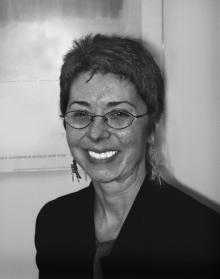
Mary Hancock, a cultural anthropologist at UC Santa Barbara, is one of 23 distinguished scholars to be appointed a fellow of the Woodrow Wilson International Center for Scholars in Washington, D.C.
As a resident fellow, Hancock will spend the next academic year at the center for advanced study where she plans to complete a book, "Remembered Futures, Everyday Histories: Politics, Culture and the Past in Urban South India."
Her current research focuses on public memory and contemporary cultural constructions of the past---how and why the past is represented and debated, focusing on its impact on transforming urban space and social movements.
An associate professor with a joint appointment in anthropology and history, Hancock joined the UCSB faculty in 1993.
In 1999, she received the Harold J. Plous Memorial Award from her colleagues for significant intellectual contributions to the campus.
Hancock is review editor of The Public Historian, a quarterly journal with editorial offices at UCSB that is sponsored by the National Council on Public History and published by UC Press.
The Wilson Center is a nonpartisan institute for advanced study and a neutral forum for open, serious, and informed dialogue.
It brings pre-eminent thinkers to Washington for extended periods of time to interact with policymakers through a large number of programs and projects.
Established by an act of congress in 1968, the center is the nation's official memorial to President Woodrow Wilson.
As both a distinguished scholar---the only American President with a doctoral degree---and a national leader, Wilson felt strongly that the scholar and the policymaker were "engaged in a common enterprise."
Related Links



